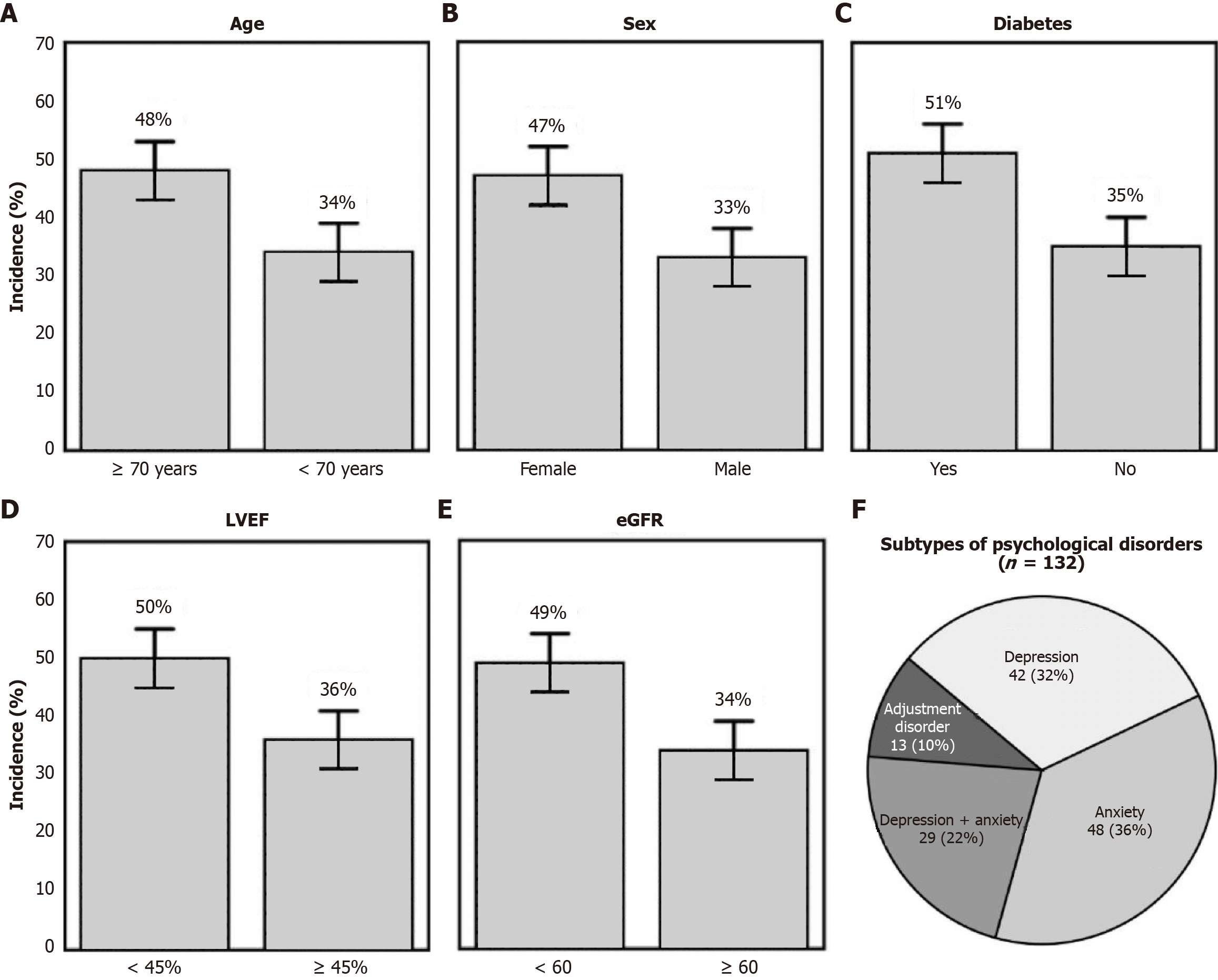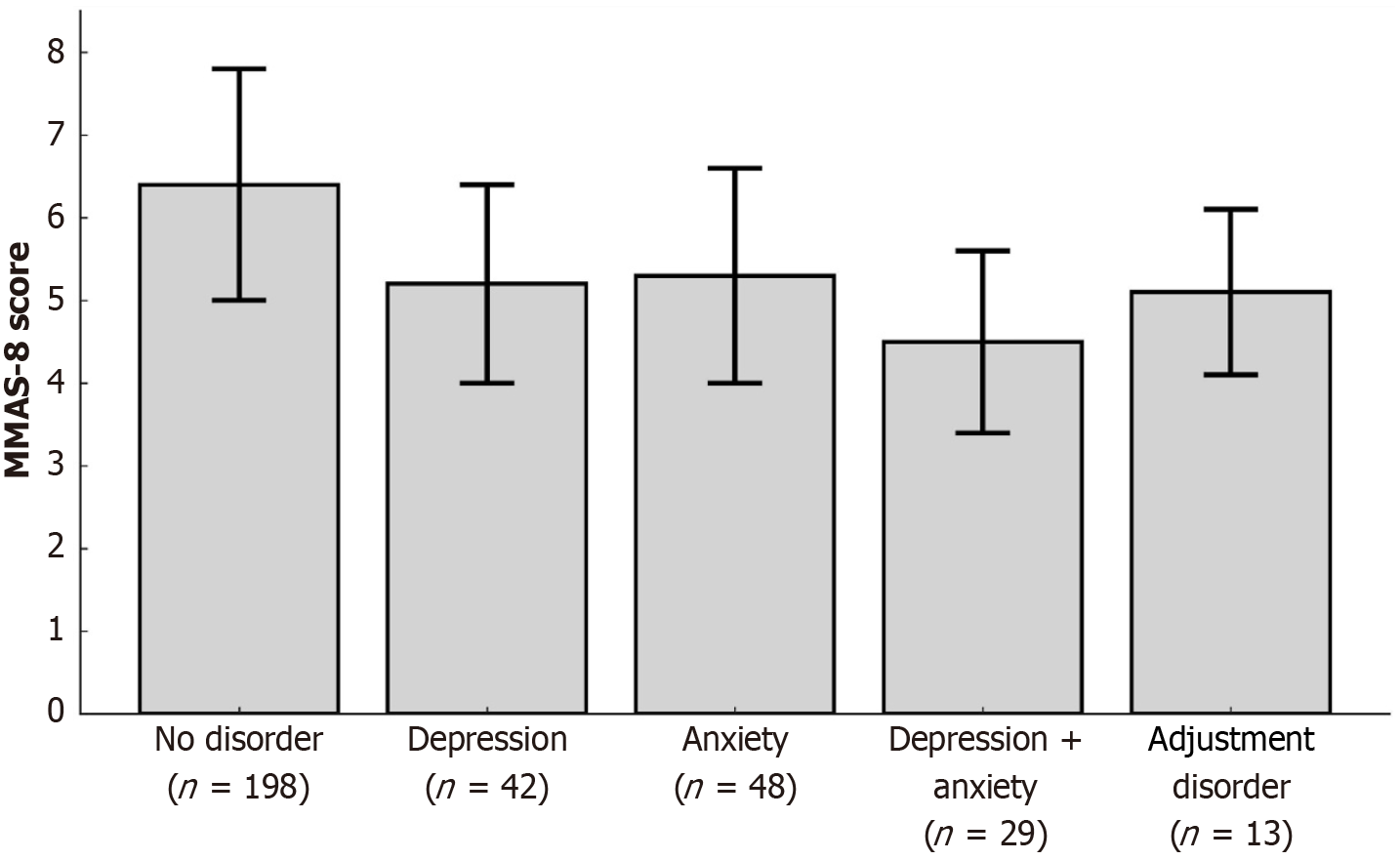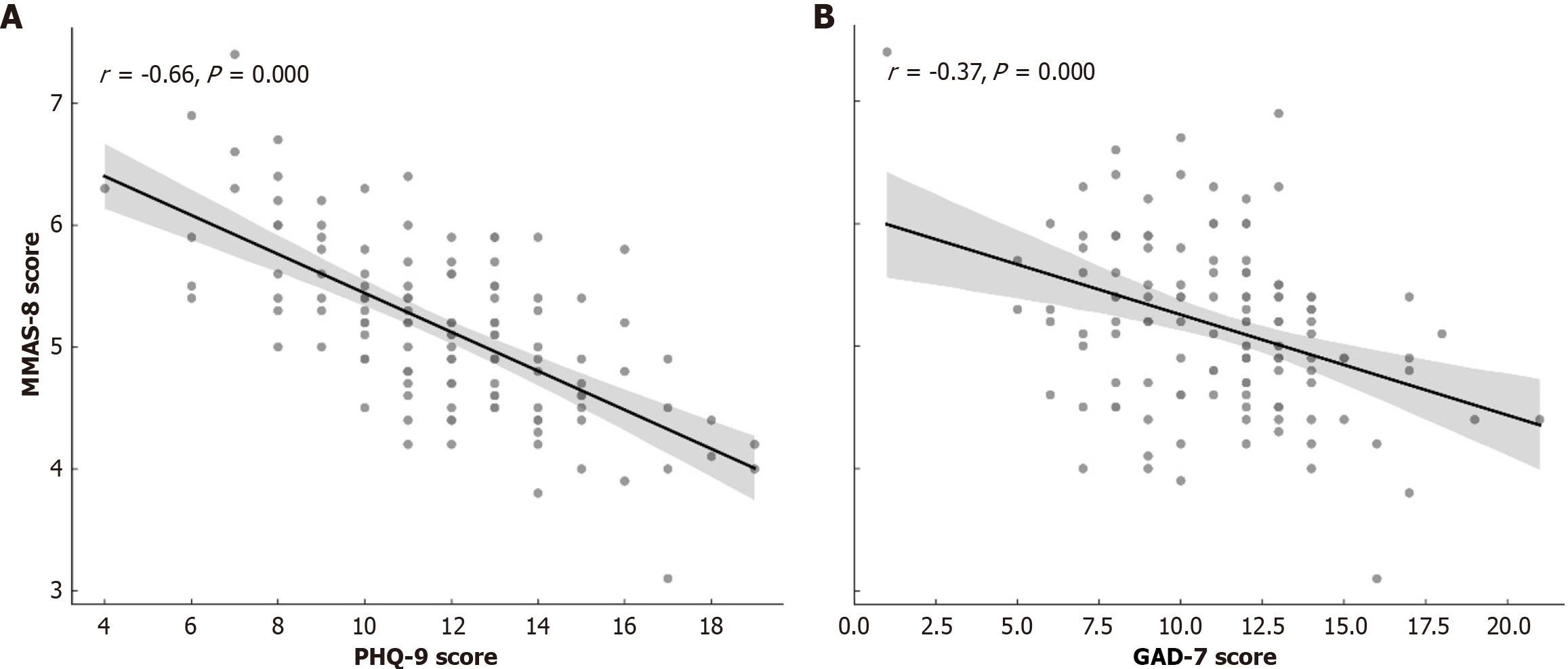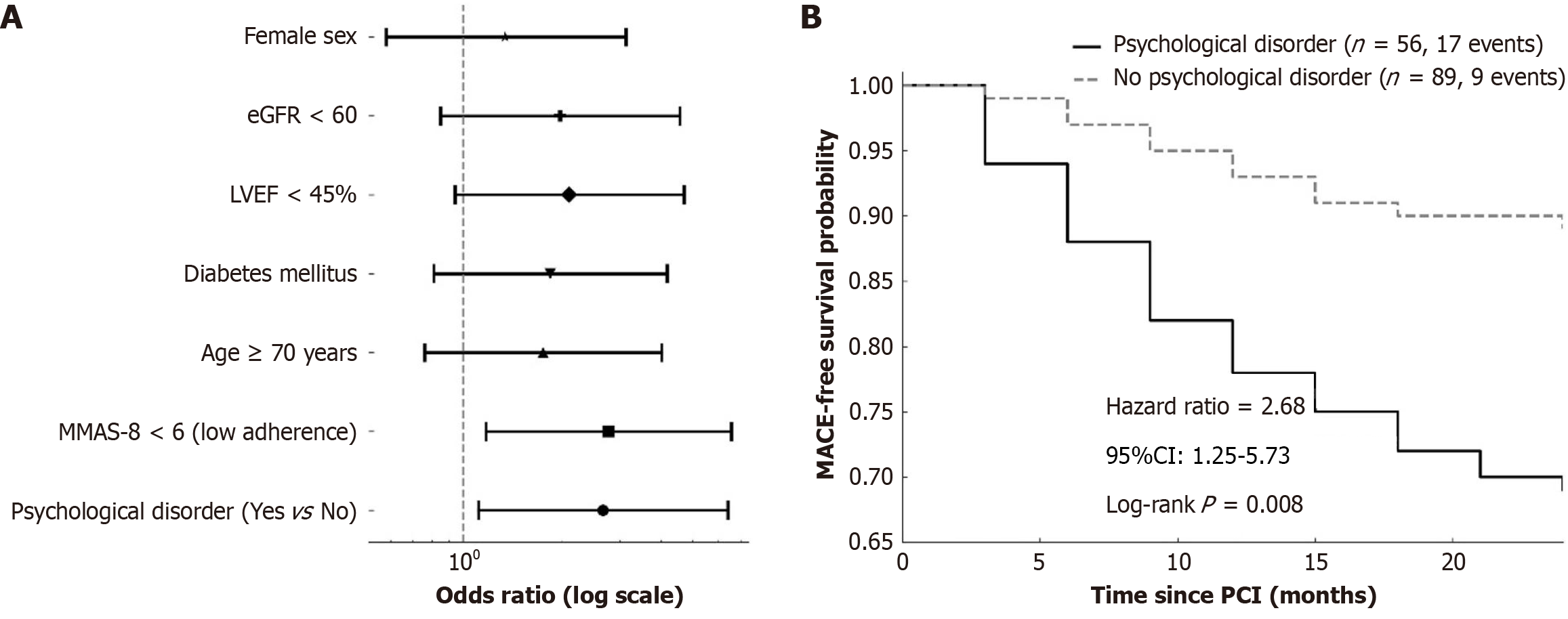©The Author(s) 2025.
World J Psychiatry. Oct 19, 2025; 15(10): 111039
Published online Oct 19, 2025. doi: 10.5498/wjp.v15.i10.111039
Published online Oct 19, 2025. doi: 10.5498/wjp.v15.i10.111039
Figure 1 Incidence and subtype distribution of post-percutaneous coronary intervention psychological disorders by clinical subgroups.
Incidence of psychological disorders within 6 months after percutaneous coronary intervention (PCI) across predefined clinical subgroups. A: Age group (≥ 70 years vs < 70 years); B: Sex (female vs male); C: Presence of diabetes mellitus; D: Baseline left ventricular ejection fraction (< 45% vs ≥ 45%); E: Renal function (estimated glomerular filtration rate < 60 mL/min/1.73 m2vs ≥ 60 mL/min/1.73 m2); F: Distribution of psychological disorder subtypes among patients with post-PCI psychological disorders (n = 132). Bars represent the proportion of patients in each subgroup who developed clinically confirmed psychological disorders within 6 months post-procedure. Error bars denote approximate 95% confidence intervals. LVEF: Left ventricular ejection fraction; eGFR: Estimated glomerular filtration rate.
Figure 2 Medication adherence (8-item Morisky Medication Adherence Scale) by psychological disorder subtype.
Bar chart comparing mean 8-item Morisky Medication Adherence Scale scores across patient groups stratified by psychological disorder subtype (n = 330). Patients without psychological disorders demonstrated the highest medication adherence scores (mean 6.4 ± 1.4), while those with comorbid depression and anxiety showed the lowest (mean 4.5 ± 1.1). Other subgroups, including depression only, anxiety only, and adjustment disorder, exhibited intermediate adherence levels. Values represent mean ± SD. Psychological disorders were classified based on standardized assessments within 6 months after percutaneous coronary intervention. MMAS-8: 8-item Morisky Medication Adherence Scale.
Figure 3 Correlation between psychological symptom severity and medication adherence (8-item Morisky Medication Adherence Scale score).
A: Scatterplot showing the relationship between depression severity, measured by Patient Health Questionnaire-9 score, and 8-item Morisky Medication Adherence Scale (MMAS-8 score) among patients with psychological disorders (n = 132). A significant inverse correlation was observed (r = -0.43, P < 0.001), indicating that higher depressive symptom burden was associated with poorer adherence; B: Scatterplot showing the relationship between anxiety severity, measured by Generalized Anxiety Disorder-7 score, and medication adherence (MMAS-8 score) in the same cohort. A similar negative correlation was found (r = -0.39, P < 0.001), supporting the impact of anxiety symptoms on treatment adherence behavior. Both correlations were estimated using Pearson’s correlation method. Patients were included only if psychological disorder was confirmed within 6 months post- percutaneous coronary intervention. MMAS-8: 8-item Morisky Medication Adherence Scale; PHQ-9: Patient Health Questionnaire-9; GAD-7: Generalized Anxiety Disorder-7.
Figure 4 Impact of post-procedural psychological disorders on long-term cardiovascular outcomes.
A: Forest plot showing multivariate logistic regression analysis identifying independent predictors of major adverse cardiovascular events (MACE) within two years following percutaneous coronary intervention (n = 145). Post-procedural psychological disorders were associated with a more than twofold increase in MACE risk (OR = 2.66, 95%CI: 1.11-6.41, P = 0.028), independent of age, diabetes, renal function, cardiac function, and medication adherence. Poor adherence (8-item Morisky Medication Adherence Scale < 6) also independently predicted MACE (OR = 2.77, 95%CI: 1.17-6.56, P = 0.021); B: Kaplan-Meier curves for MACE-free survival, comparing patients with psychological disorders (n = 56, 17 events) vs those without (n = 89, 9 events). Psychological morbidity was associated with significantly reduced MACE-free survival over the 2-year follow-up period (HR = 2.68, 95%CI: 1.25-5.73; Log-rank P = 0.008). Vertical dashed line in A represents the null effect (OR = 1). MMAS-8: 8-item Morisky Medication Adherence Scale; PCI: Percutaneous coronary intervention; MACE: Major adverse cardiovascular event; LVEF: Left ventricular ejection fraction; eGFR: Estimated glomerular filtration rate.
- Citation: Du CS, Hao BC, Mao S, Yin Z, Chen SS, Zhao B, Xia HH. Post-percutaneous coronary intervention psychological disorders predict poor adherence and cardiovascular events in elderly heart failure patients. World J Psychiatry 2025; 15(10): 111039
- URL: https://www.wjgnet.com/2220-3206/full/v15/i10/111039.htm
- DOI: https://dx.doi.org/10.5498/wjp.v15.i10.111039
















